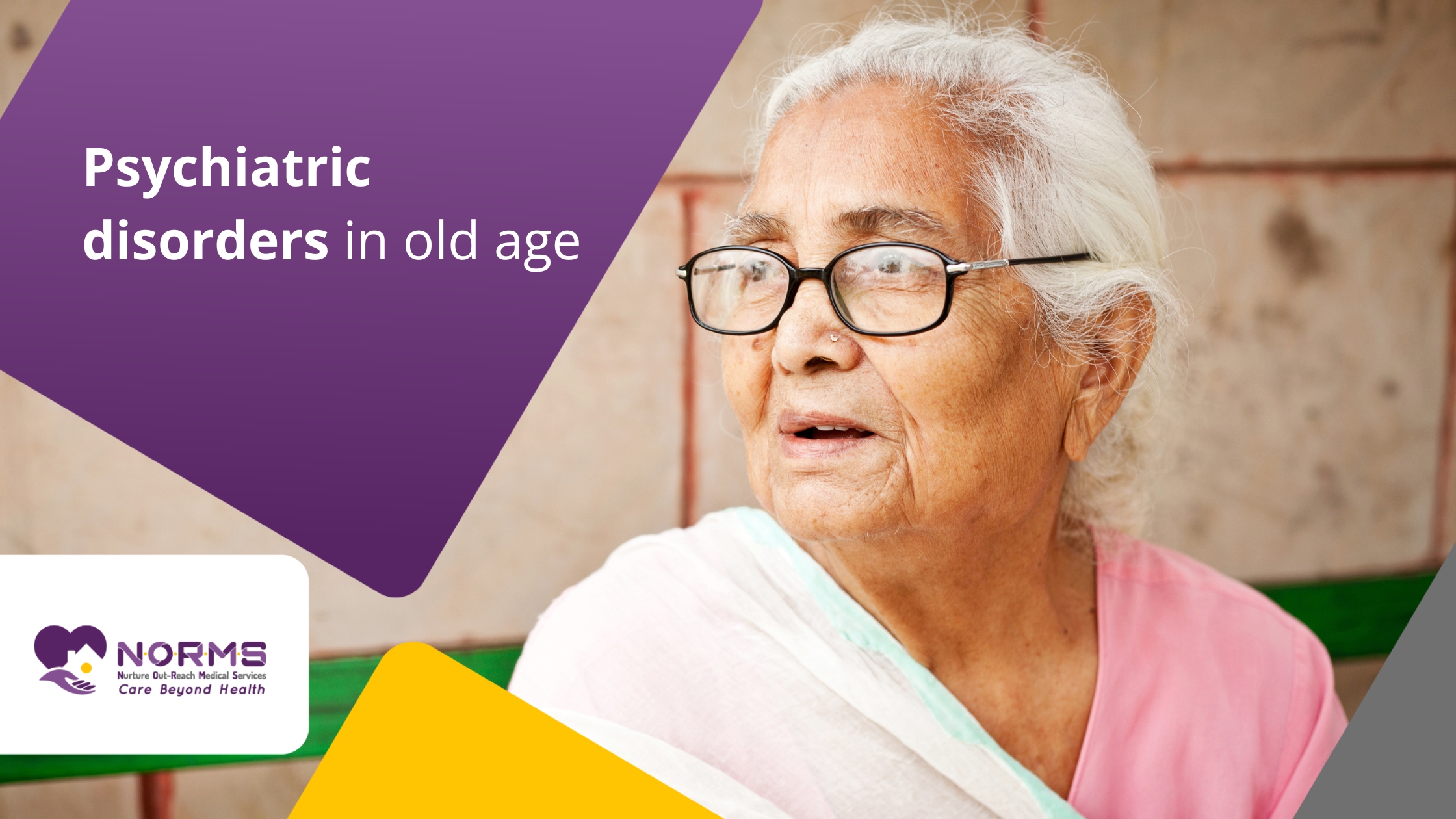
Mental Health refers to the state of a person’s behavioural, psychological, and emotional well-being. If a person has an excellent psychological state, it means he/she is not only healthy mentally, but is also able to deal with the daily issues of life, interact with people around them, and manage a variety of emotions. As people grow older, there is a tendency to face many psychiatric disorders such as depression, anxiety, and psychosis which are quite often neglected despite the burning need to address those mental health problems in elderly. These psychiatric disorders in old age will lead to decreased cognitive function and have consequences that include social deprivation, poor quality of life, loneliness, eating disorders and disability. According to the World Health Organization, the world’s elderly population aged 60 years or above, was 1 billion in 2020 and this figure will reach 1.4 billion by 2030 meaning one in six people globally. This calls for urgent focus and attention to the mental health management and treatment options available for the elderly population.
Table of contents:
Psychiatric disorders, commonly referred to as mental illness, are a group of health conditions, such as depression and anxiety, that affect our thoughts, emotions, behaviours, and experiences. It is a condition that is caused by various factors that include genetics, personality, stress, and brain chemistry. Mental health problems in old age are quite common, but it does not mean that it is normal to have these mental disorders. Many people do not show old age mental disorders, even though they may have other health issues or physical problems. However, sometimes, significant changes in their life such as losing a loved one, retirement or dealing with a serious medical condition can make them feel uncomfortable, stressed out and sad. This eventually makes them more susceptible to developing mental disorders such as depression and anxiety.
It is very imperative to recognize and take immediate and necessary action on the symptoms of psychiatric disorders in old age people, before they become worse and cause severe complications to physical and mental health. Here are some tips to help identify the early signs and symptoms of mental health problems in elderly, be it your parents, grandparents, or a loved family member.
While there is an increasing provenance of mental disorders among older people, access to mental health services is very limited. Some old age people who need help do not like to take treatment because they dismiss their mental changes as a natural phenomenon of ageing, or they are ashamed of talking about it. Another potential obstacle is that they might be unwilling to acknowledge that they even have a problem.
Recognizing and addressing the mental health problems in old age people is not just a personal concern but a societal imperative. It is important to understand that psychiatric disorders in old age involve more than just treating disorders; it encompasses encouraging an environment where emotional and psychological well-being are a priority. The first step is to increase awareness and reduce stigma, so that more elderly people seek help without any hesitation or fear of judgement. Effective mental health and ageing strategies like early diagnosis, effective treatment, and empathetic care will facilitate timely and appropriate interventions to improve the quality of life in elderly people thereby impacting their ability to enjoy their later years with dignity and independence.
Families can play a pivotal role in effectively tackling mental health problems in old age people by being actively involved, showing empathy, and encouraging conversations about feelings and well-being. Spending quality time with your elderly loved ones and involving them in family discussions will make them feel included in family decisions. This will help them maintain their social connections, which is crucial for mental health in old age.
In addition to these, regular medical check-ups and quality treatment will not only enhance their physical and mental health but improve their emotional well-being, because they feel greatly cared and utterly loved. Seeking services from healthcare services providing companies may help manage emotional stress and burnout for the caregivers in the family. This will improve the bonding between the caregivers and the elderly people in the family, which in turn improves the mental health of the elderly people.
Psychiatric disorders, commonly referred to as mental health problems in old age are common, but cannot be neglected. Many people do not show any symptoms until some significant changes occur in their life such as losing a loved one, retirement, being lonely or any medical condition that makes them feel uncomfortable, stressed out and sad which eventually leads to depression and anxiety. We should watch out for symptoms such as change in sleep patterns, fatigue, mood swings, change in eating habits, and any other physical or mental health conditions like anxiety, depression, smoking, withdrawing from people or social activities, etc. Some old age people who need help dismiss mental changes as a natural phenomenon of ageing, or they are ashamed of talking about it. Another potential obstacle is that they don’t want to acknowledge that they even have a problem. Recognizing and addressing the mental health problems in old age people is not just a personal concern but a societal imperative. Psychiatric disorders in old age involve more than just treating disorders; it encompasses encouraging an environment where emotional and psychological well-being are a priority. Effective mental health and ageing strategies like early diagnosis, effective treatment, and empathetic care will facilitate timely and appropriate interventions to improve the quality of life in elderly people thereby impacting their ability to enjoy their later years with dignity and independence.